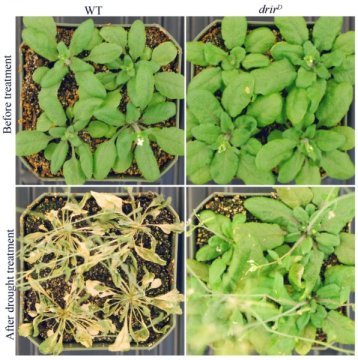Scientists have discovered a ribonucleic acid, or RNA, that can increase the thale cress plant’s resistance to stress from drought and salt.
The discovery could help illuminate a new pathway to engineering drought- and salt-tolerant plants, including food crops, said Dr. Liming Xiong.
“This is the first finding of a long non-coding RNA, or lncRNA, that regulates plant tolerance to adverse, non-physiological external factors,” Xiong said.
The lncRNA his team discovered in thale cress plants existed in low numbers under non-stress conditions, but levels increased when the plants encountered drought or salt stress, he said. Manually increasing the level of the lncRNA showed corresponding increases in drought and salt tolerance compared with plants where the lncRNA level was unaltered according to Science daily.
Most RNA direct or “code” cell machinery to produce proteins. Non-coding RNA, or ncRNA, does not direct protein production but could affect how gene expressions manifest in innumerable other ways. As such, they are considered regulators of important biological processes, Xiong said.
“And there are different types of ncRNA,” he said. “Small ncRNA have received much attention in recent years, but in many long, or lncRNA, like the one we found to affect drought and salt tolerance in thale cress, the biological functions remain unknown.”
The basic difference between small and long non-coding RNA is the number of nucleotides — the structural building blocks of RNA. Long have more.
Xiong said investigating the effects of lncRNA is a novel approach to plant drought and salt tolerance research.
“Most of the current work on improving plant stress tolerance does not focus on lncRNA but on the genes that code protein production,” he said. “However, manipulation of those protein-encoding genes often impairs plant growth and development.”
But the lncRNA studied by Xiong’s team can be tweaked without any apparent detriment to the plant’s health, he said.
“It’s early still, but we could be on the brink of a whole new approach to engineering drought and salt tolerance in plants, including food plants,” Xiong said. “Our next step will be to engineer the lncRNA levels in plants other than thale cress and to test whether it might improve drought and salt tolerance across a broader spectrum.”
N.H.Kh

